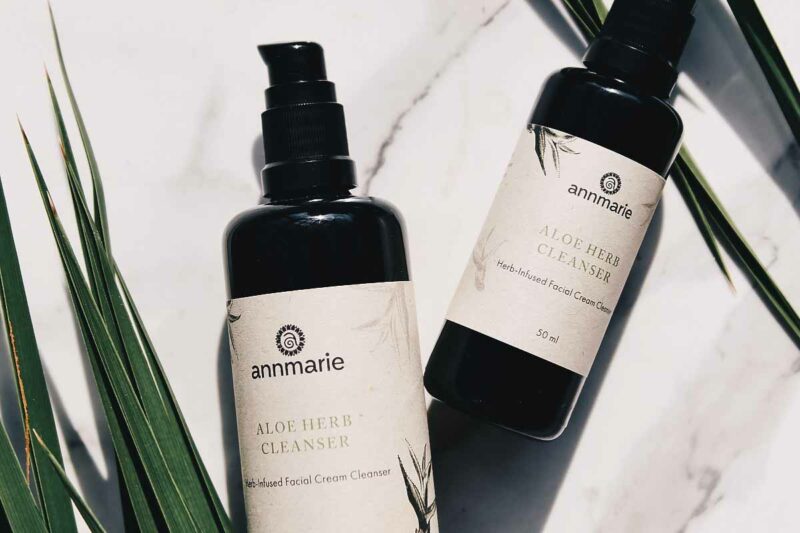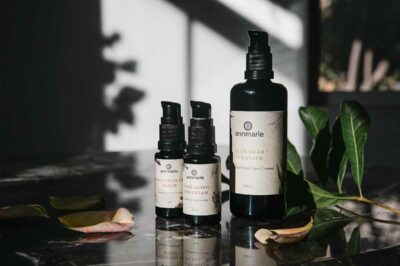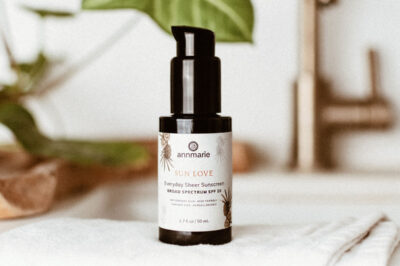Table of Contents[Hide][Show]
Frequently Asked Questions+−
- 1. What Age Does Aging Start?
- 2. Can Skin Aging Be Reversed?
- 3. When Can You Use Anti-Aging Products?
- 4. Are Natural and Organic Ingredients Effective in Anti-Aging?
- 5. How Do I Choose the Right Anti-Aging Products for My Skin Type
- 6. Can Men Use the Same Anti-Aging Products as Women
- 7. Is There a Difference Between Day and Night Anti-Aging Routines?
Anti-aging properties in skin care products refer to the ability of these products to prevent, delay or slow down signs of aging on the skin. These signs can include but are not limited to the look of wrinkles, fine lines, loss of skin firmness, and uneven skin tone.
Common anti-aging properties in skin care include:
- Hydration and nourishment: Proper hydration is key to maintaining plump, elastic-looking skin. Ingredients like aloe vera, tremella mushroom, saccharide isomerate, and hyaluronic acid draw moisture into the skin, preventing dryness and reducing the appearance of fine lines.
- Antioxidant protection: Antioxidants, found in vitamin E, green tea, and berries, protect against harmful environmental pollutants and overexposure to UV, which can accelerate skin aging.
- Firming and tightening: Vitamin C and other nutrients support the skin’s natural look of bounce and firmness—helping to reduce the appearance of aging, as it is typical for natural collagen production to drop overtime during the aging process.
- Skin rejuvenation: Natural ingredients like retinol alternatives, such as bioactive a-complex, and herbal extracts encourage the look of skin renewal, leading to smoother, more youthful-looking complexion.
5 Anti-Aging Market Trends
The anti-aging skin care market is dynamic, with evolving trends that cater to the diverse needs and preferences of consumers. These trends reflect the latest innovations, consumer behavior, and the shifting landscape of skin care. Here are some of the more popular anti-aging skin care categories recently.
Use of Hyaluronic Acid in Anti-Aging Products
Hyaluronic acid has become a buzzword in the skin care industry, and for a good reason. This powerful humectant can hold up to 1,000 times its weight in water, providing unparalleled hydration to the skin. Its inclusion in latest anti-aging skin care formulations helps to plump the skin, reduce the appearance of fine lines, and enhance overall skin texture.
While hyaluronic acid is generally well-tolerated, the pros and cons of anti-aging products with this ingredient should be considered. Despite being beneficial for hydration and plumping, they may not address all aging concerns, such as dryness, deep wrinkles or skin laxity. Additionally, animal-derived hyaluronic acid often comes from the combs of roosters.
Here is a list of plant-based alternatives for hydration that we like to use in our line of anti-aging products:
- Plant-derived hyaluronic acid (HA): Our hyaluronic acid (featured in our serums), comes from non-GMO vegetables.
- Aloe vera: Contains mucopolysaccharides that help retain moisture
- Tremella mushroom: An ancient Chinese beauty ingredient known for its exceptional hydration and firmness-enhancing properties that can be seen in our Probiotic Serum With Tremella. Our source comes from 100% organic fruiting bodies, free of fillers and carriers. This natural hydrator surpasses even hyaluronic acid in its ability to retain moisture, making it an exceptional ingredient for anti-aging products.
Retinol Based Anti-Aging Products
Retinol remains a cornerstone ingredient in anti-aging skin care, renowned for its ability to reduce the appearance of wrinkles, fine lines, and uneven skin appearance. The latest anti-aging skin care formulations include stabilized retinol compounds that are more comfortable to the skin, making them suitable for a broader range of skin types.
Despite their effectiveness, it’s essential to consider the pros and cons of anti-aging products containing retinol. While they may improve skin texture and tone in the short-term, they are notorious for also causing dryness and sensitivity, particularly in higher concentrations. Beyond cosmetic concerns, regular use of retinol also raises issues related to hormone disruption, reproductive and developmental issues, and more.

Some natural alternatives to retinol:
- Bioactive A-Complex: A green algae extract using advanced technology to harness lipid fractions for skin health, provides hydration, renewal, and anti-aging benefits without retinol’s harshness.
- Bakuchiol: Derived from the seeds of the babchi plant, bakuchiol offers similar benefits to retinol, including promoting collagen production and reducing signs of aging, without the discomfort commonly associated with synthetic retinol.
- Rosehip Oil: Packed with vitamins, antioxidants, and essential fatty acids, rosehip oil helps improve skin rejuvenation, firmness, and overall complexion, making it a gentle alternative for sensitive skin types.
- Carotenoids: Found in carrots, sweet potatoes, and other orange-colored vegetables, carotenoids like beta-carotene convert to vitamin A in the body and provide antioxidant benefits, helping to protect the skin from environmental stressors.
Natural and Organic Ingredients in Anti-Aging Products
Latest anti-aging skin care trends increasingly embrace natural and organic ingredients, driven by consumer awareness around health and environmental concerns associated with exposure to chemicals, pesticides, and synthetic substances.
This trend emphasizes a fusion of nature and science to address aging signs, highlighting key actives like vitamin C, vitamin E, synergistic herbal blends, aloe vera, tremella mushroom, and more for their antioxidant and renewing benefits.

- Aloe vera: Known for its soothing and hydrating properties, aloe vera is a cornerstone of natural skin care. Enjoy the soothing and hydrating effects of aloe vera with our Aloe Herb Facial Cleanser, crafted to gently cleanse while maintaining your skin’s natural moisture.
- Herbal infusions: Many of our products have potent herb-infused base oils—like our Anti-Aging Facial Oil, which has up to 26 organic and wildcrafted herbs in the base alone, thoughtfully curated and combined to create a synergistic effect for benefitting the skin (and this doesn’t include the additional plethora of herbs and antioxidant-rich botanicals in the rest of the formula).
- Vitamin C: Essential for plumping and brightening the skin, vitamin C is a key ingredient in anti-aging skin care. Our Citrus Stem Cell Serum features natural forms of vitamin C, like amla fruit, paired with citrus-derived stem cells and other skin-brightening wonders, such as uva ursi extracting a licorice root to help firm and illuminate your complexion.
Integration of Alphabetic Formulation in Anti-Aging Products
Alphabetic formulations typically refer to the use of vitamins in skin care, which are crucial for maintaining healthy, youthful skin, making them popular anti-aging skin care choices in the market.
- Vitamin A: Such as beta-carotene from carrots and sweet potatoes, which help improve skin renewal and firmness.
- Vitamin B: Found in mushrooms, avocados, and sweet potatoes. Vitamin B (particularly niacinamide) supports the skin’s barrier function, reduces redness, and balances hydration.
- Vitamin C: Extracted from sources like kakadu plum and camu camu. Our Vitamin C products help brighten the skin, boost skin bounce, and protect against environmental aggressors. We also feature an incredibly gentle, yet effective, oil-soluble form of vitamin C—tetrahexyldecyl ascorbate (THDA)—in our Brighten Concentrated Boosting Elixir.
- Vitamin E: Sourced from almonds, spinach, and sweet potatoes. They act as a natural antioxidant to fight environmental stressors and improve skin moisture.
Multifunctioning Anti-Aging Products
In today’s fast-paced world, consumers are looking for efficient and effective skin care solutions. Multifunctioning anti-aging products meet this demand by offering multiple benefits in a single product, like a sunscreen that protects skin against UV damage, while also having moisturizing and anti-aging properties.
This trend reflects the latest anti-aging skin care advancements where convenience is the key feature. Products that can provide comprehensive care while saving time are becoming increasingly popular anti-aging skin care choices.
While multifunctioning anti-aging products offer the convenience of combining multiple skin benefits into one, it’s important to consider all aspects to ensure they align with your skin care needs. Here are some potential drawbacks:
- Less targeted formulations: May not address specific skin issues as effectively as a specialized method.
- Ingredient concentration: Activated ingredients might be less concentrated than in single-purpose products, potentially leading to subtler effects.
- Skin compatibility: The variety of ingredients may increase the chance of skin reactions, particularly for sensitive skin types.
- Over-reliance: There’s a risk of neglecting other crucial skin care steps or lifestyle factors essential for maintaining youthful skin.
An easy way to avoid these types of issues is to find a brand you trust that prioritizes safe, effective formulas and puts out clean products that focus on high-quality sourcing and results-driven, activated ingredients.
The Future of Anti-Aging Skin Care?
Shift Towards Natural and Organic Ingredients
The future of anti-aging skin care sees an increasing emphasis on incorporating products with natural and organic ingredients. This shift is driven by a growing consumer demand for products that are not only effective but also environmentally friendly and safe for long-term use. As awareness of the adverse effects associated with synthetic chemicals increases, more individuals are turning towards natural ingredients such as plant extracts, essential oils, and natural antioxidants known for their skin-friendly properties.
These ingredients are commonly used to support skin health, offering rejuvenating, hydrating, and protective properties without the harsh side effects often associated with conventional products. In this evolving landscape, the future of anti-aging skin care looks to merge the best of nature with cutting-edge science to provide solutions that are both kind to the skin and the planet.
Additionally, the trend towards gluten-free products caters to the increasing number of consumers with sensitivities, ensuring skin care is inclusive and comfortable. The integration of these elements into skin care routines signifies a broader industry move towards transparency, sustainability, and consumer well-being in the future of anti-aging skin care.
Sustainability and Ethical Practices
The industry is moving towards more sustainable and ethical practices, reflecting the growing consumer expectation for responsible skin care products. The future will see a continued push for eco-friendly packaging, ethical sourcing of ingredients, and cruelty-free certifications. Consumers are becoming more mindful of the environmental impact of their purchases, influencing brands to adopt more sustainable and transparent practices. This shift not only addresses environmental concerns but also ensures that skin care products are safe, ethical, and of high quality.
The Role of Wellness and Holistic Health

A holistic approach, encompassing diet, exercise, mental health, and external skin care routines, is also becoming increasingly popular. This trend recognizes that a healthy lifestyle and well-being significantly influence the skin’s appearance and aging process. Future skin care regimens will likely integrate more aspects of holistic health, offering solutions that go beyond topical treatments.
Frequently Asked Questions
1. What Age Does Aging Start?
Aging is a natural process that begins from birth. However, visible signs of skin aging typically start appearing in the mid-20s to early 30s, varying significantly among individuals based on genetic, lifestyle, and environmental factors.
2. Can Skin Aging Be Reversed?
While aging is a natural process, we can significantly reduce the appearance of aging signs and improve skin health. It’s not about reversing aging, but supporting this inevitable process with graceful aging. Using products rich in natural antioxidants, hydrating agents, and skin-rejuvenating ingredients, like aloe vera, bioactive A-complex, and vitamins E and C, can help revitalize the skin and restore a more youthful appearance.
3. When Can You Use Anti-Aging Products?
It’s generally advisable to start incorporating anti-aging products into your skin care routine in your mid-20s to early 30s.
4. Are Natural and Organic Ingredients Effective in Anti-Aging?
Yes, natural and organic ingredients can be highly effective in anti-aging care. Ingredients like aloe vera, vitamin E, and vitamin C offer hydrating, antioxidant, and skin-firming benefits, respectively, contributing to healthier, younger-looking skin.
5. How Do I Choose the Right Anti-Aging Products for My Skin Type
Look for products that cater to your specific skin concerns and type. For dry skin, seek out moisturizing ingredients like jojoba oil. For dehydrated skin, look for hydrating ingredients like aloe vera, hyaluronic acid, collagen prepeptides, and saccharide isomerate. For oily skin, lightweight formulas with vitamin C can provide anti-aging benefits without causing sensitivities.
6. Can Men Use the Same Anti-Aging Products as Women
Yes, absolutely! Men can use women’s skin care products, as long as they select the appropriate formulations for their skin concern and skin type.
7. Is There a Difference Between Day and Night Anti-Aging Routines?
Yes, day routines typically focus on protection from the sun and pollution, while night routines aim to rejuvenate the skin. A common anti-aging routine can look like applying your vitamin C serum in the mornings alongside your moisturizer and sunscreen, while your evening application includes your alpha hydroxy acid or retinol-alternative, and a deeply restorative night cream or skin balm. Using a combination of products designed for day and night can provide round-the-clock anti-aging benefits. You can learn more ways to improve your daily anti-aging routine through this article.








Leave a Reply